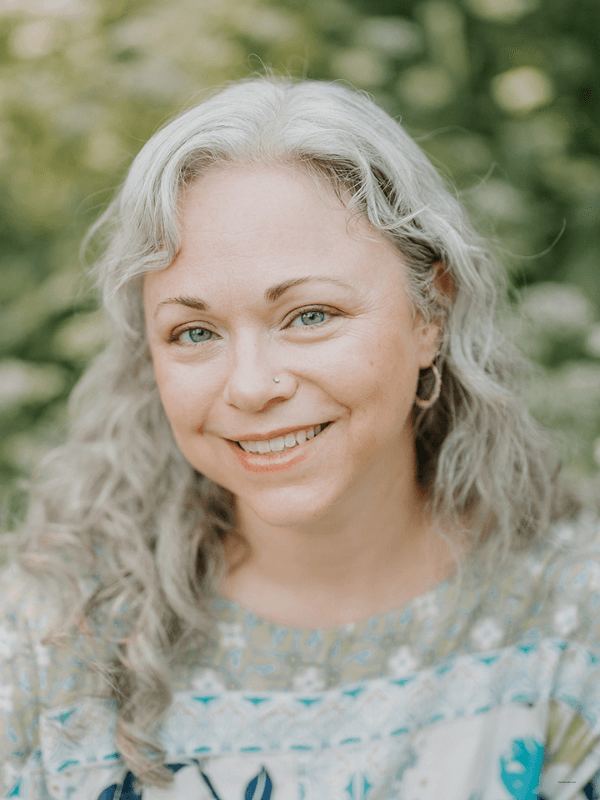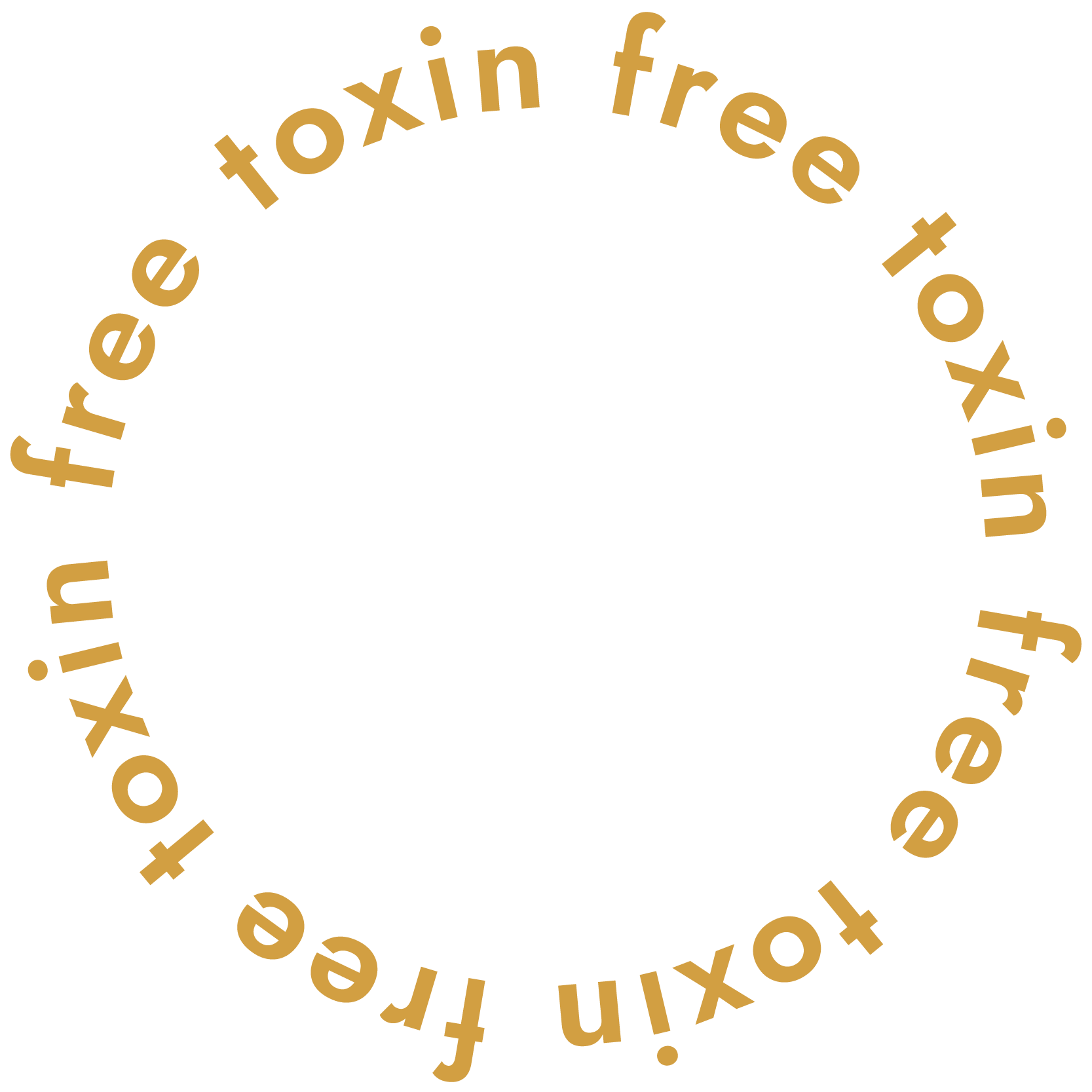Apple Podcasts | Spotify
If you’ve ever tried switching to mineral sunscreen only to hate the white cast, thick texture, or breakouts it caused, this conversation with Julie Longyear about her skincare formulas is going to change everything for you.
In today’s episode, I’m talking with the founder of Blissoma, a skincare brand that has a cult-like following among people with the most sensitive, reactive skin.
What makes Julie so special is that she actually formulated her own sunscreen in-house. This is something most clean skincare companies won’t even attempt because of the FDA approvals, drug facts panels, and complexity involved.
We dive deep into:
- Why she spent evenings and weekends for months perfecting her sunscreen formula
- How she fought back against manufacturers who tried to sneak in butyl octyl salicylate (a chemical UV filter disguised as an inactive ingredient)
- Why she believes our skin hasn’t changed much since we were cave people, and it’s just the products we’re using that are causing problems.
This conversation gets real about the manufacturing industry, why brands get pressured to compromise their formulations, and how Julie created a zinc oxide sunscreen that doesn’t leave you looking like a ghost or feeling like you have cement on your face.
In this episode, we’re chatting about:
- The sunscreen formulation journey
- Regenerative vs. organic sourcing
- Manufacturing industry truths
- Sensitive skin solutions
Let’s start at the beginning. What made you start Blissoma?
If you ask my parents, I was the type of kid who was always out in the backyard mixing little potions together out of leaves and berries. I have a naturally curious personality and was always eager to learn.
When I started having skincare problems, like acne breakouts and rashes, I didn’t know what it was from. It turns out the wrong skincare and ingredients were causing it. My skin was very unhappy. It was a very natural process for me to think I could do something about it.
I have a background in chemistry, which I’ve applied to herbalism.
How do you choose to source your ingredients?
Sometimes we choose the small, regenerative, high-quality farm over a bigger certified organic source. Those choices are all made with a lot of thought, but my goal is to send as much money directly to farmers as possible. There really is a difference between a big certified organic distributor and someone who dried it themselves.
It’s my job to make those choices on behalf of people. We talk to farmers and find the best sourcing we can. Our customers can be confident we’ve put in the effort to find the best ingredients for our skincare formulas.
The majority of skincare companies, even the best ones that formulate all their skincare products in-house, won’t do that for sunscreen. But you formulated your own sunscreen. Can you talk about that process?
It was a long and slightly torturous process at times! There was a time when I spent most evenings and weekends at the studio. I could only do test batches when the rest of the staff wasn’t there.
I had to do everything completely from scratch every single time. It’s a long process, and I had to decide ahead of time what I’m going to do differently. What was the problem in this batch, and how can I attempt to fix it?
I meticulously kept track of every single skincare formula and what I changed each time. I can chronologically go back through all of the different versions of the recipe. If I don’t keep good notes, I’m likely to duplicate and waste time.
Sunscreen is one of the biggest minefields for people with sensitive skin. I look at the formula from a toxin-free perspective, but I also think about skin irritation and how the skin will react to the product.
I approach skincare formulas more timelessly. I want to put in the work to formulate something that is really good at what it does. Then, I want to leave it alone for maybe forever. I’m not looking to have a new recipe every single year.
I love formulation, but I don’t think we need it all the time. The skin hasn’t undergone significant biological changes since we were cave people. The skin is the same. It’s the shit that we’re doing to it that is different. That’s what is causing all these different effects that we now need new solutions to. I don’t think newer is always better.
Why does sunscreen cause problems for people with sensitive skin?
For some of us, our bodies are the ultimate truth tellers.
There are people whose bodies are maybe resilient enough to overcome the effects of long-term toxin or UV exposure.
I think an upside to having sensitive skin is that it’s telling me what I need to know. It’s immediately giving me a sign that something in this product is different, and it’s going to react a certain way. My body is communicating with me, and it’s my job to listen.
Sunscreen is one of those products that can be a really huge problem for people who have very sensitive skin. Everything from fragrances and emulsifiers to propylene glycol and UV filters could cause problems.
People’s skin can react and break down. I get breakouts if I use things with silicones in them. Even a lot of mineral sunscreens these days have silicones in them because it makes it easier to spread, and it theoretically helps the skin retain more moisture (except it really doesn’t.)
I think that’s the benefit of people being in tune with their bodies. People need to listen to their intuitions and pay attention to how their skin is reacting to things. Many people go through their day so busy that they’re not attuned to what’s happening.
I think slowing down and paying attention to these questions is hugely important:
- What is my skin telling me?
- What is my body telling me?
- How is this making me feel?
Creating Toxin-Free Skincare Formulas
It was such a pleasure to talk to Julie about the clean sunscreen she developed for people with sensitive skin.
I’ve talked a lot about the importance of sunscreen and finding the best clean version for you. I prefer mineral sunscreen, but I’m excited to give hers a try!
Shop all Blissoma products right here.
FAQs About Clean Skincare Formulas
What is the most damaging thing for your skin?
Unprotected sun exposure is so damaging to your skin. It’s important to apply clean, toxin-free sunscreen daily, especially to your face.
Does organic mean clean?
No, organic doesn’t automatically mean the product is clean. It’s very much a case-by-case basis. Learn how to read labels to know the difference.
What is the cleanest makeup brand?
I have personally vetted all the cosmetics in my Toxin Free Shopping Guide. They are brands I trust to provide high-quality, toxin-free products.
About Blissoma
Our products restore skin to balance through the scientific and sacred relationship between plants and people. Our focus on raw plant ingredients means that each of our products contains 75% or more active ingredients, drastically exceeding the cosmetic industry norm.
We specialize in targeted care for demanding skin types. If you suffer from extremely sensitive skin, allergies, or other skin problems, we can help. You deserve to feel good about your skin.
Related Episodes:
Episode 16: The Truth About Sun Exposure and Sunscreen: Finding the Middle Ground
Episode 119: The Mineral Sunscreen Ingredient That’s Causing Your Sun Care to Be Less Clean Than You Think
Episode 120: Shark Attacks and Pool Damage: The Inside Scoop on Tallow Sunscreen


+ show Comments
- Hide Comments